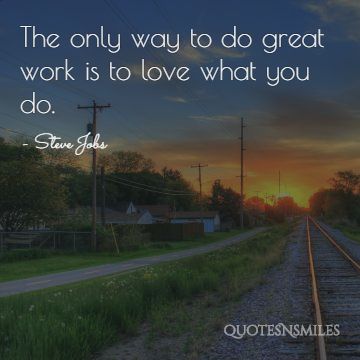
Apple's co-founder Steve Wozniak has given his first in-depth interview about the forthcoming Steve Jobs movie.
Woz - as he's commonly known - acted as a consultant to Danny Boyle's film after refusing to be involved in an earlier biopic.
The movie is already being tipped for awards glory after a rough cut was shown to the public last weekend, ahead of its official premiere in October.
The movie's scriptwriter is Aaron Sorkin. His previous account of Facebook's rise won three Oscars. But the social network's founder Mark Zuckerberg was not a fan.
Some wondered what Woz would make of the new film after he expressed mixed feelings about the way its trailer showed him angrily challenging Steve Jobs to his face in its trailer.
But, as he told the BBC, he is more than satisfied with the outcome.
 Michael Bulbenko
Michael BulbenkoSteve Wozniak: Shocked and amazed by Steve Jobs movie
You've now had a chance to watch the rough cut of the film. What were your impressions of it?
I've actually seen two rough cuts. My impression was I was shocked and amazed at how good it was in the sense of professional filmmaking.
I usually go to a movie not looking for "do I like the story" as much as: "What is the quality that came out of the heads of the people that made it?"
In this case the filmmakers have done an award-winning job. The acting was just so realistic.
In some prior movies, I saw [the actors] simulating Steve Jobs, but they didn't really make me feel like I was in his head understanding what was going on inside of him - his personality.
This movie absolutely accomplishes that, and it's due to great acting, which obviously comes from great directing.
Some people had been critical that Michael Fassbender doesn't look like Steve Jobs. What did he manage to do, then, to capture him?
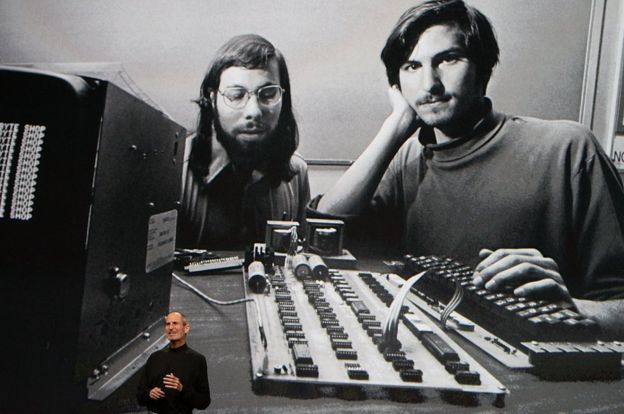 Getty Images
Getty Images
A lot of people think the face of Steve Jobs matters, but it's his brain, his head, the way he worked, how did he think, how did he act with people - that's important.
Michael does an incredible job with a tight script and for very much of it he's interfacing with Kate [Winslet, who plays Apple's marketing chief Joanna Hoffman], and the two of them are superb together.
It's believable that this is how things would have happened and went down, and I felt I was seeing the real Steve Jobs in there.
Of course, I have prosopagnosia where I don't really store faces. So, to me faces don't matter that much anyway.
What particular aspects of Steve Jobs' personality are shown well?
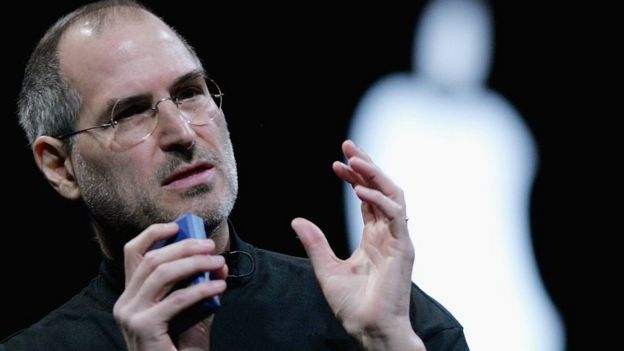 Getty Images
Getty Images
It deals with what we are all very familiar with - a lot of his negativism.
This comes about less with him doing negative things to other people, and more him just sort of standing [there] and not caring as much about others as himself, and not being able to have feelings very much.
It deals very much with that part of him all through the movie right to the end, with some resolution to it. That's the major conflict in the movie.
But it also deals with him going through various product introductions and how he would have to be very tightly in control.
Part of the "reality distortion field" is in there, and his failing to listen to others on occasion and only seeing everything he did as right.
These are well-known traits and there are stories we've heard about Steve Jobs.
But when you see it portrayed dramatically, not the way it really happened but in a way that is emotionally graphic, it really conveys what Steve Jobs was really like inside... and what it was like to be around him.
How involved were you in making the film?
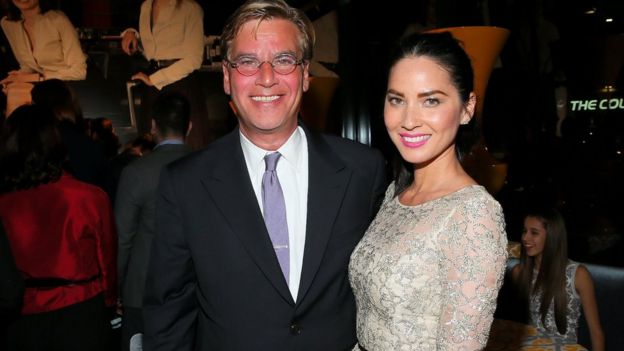 Getty Images
Getty Images
About a year-and-a-half ago I went down and met with Aaron Sorkin.
He would ask some questions and I would start relating bits and pieces of stories. And he would put them into his movie.
He didn't put them in what I consider necessarily accurate or fair ways in every case, but it still came out as a good movie.
Things that were in existence in the real world were put into my mouth.
So, I may not have said those things. I may not have been talking to Steve at those events.
But they were "in the air", so you have to put them in someone's mouth to make a movie.
You have previously said you didn't talk to Walter Isaacson, who wrote the biography on which the movie is based. What made you decide to get involved this time round?
 Getty Images
Getty Images
Walter Isaacson said I did meet him at a couple of events - see I don't pay attention to names, I'll talk to anybody - and I guess I did give him information.
I did not get involved in the movie Jobs that starred Ashton Kutcher.
I was interested in doing consulting for it, and then they sent me a script and I thought: "You've already got a script written and it's really lousy."
My feeling is that it just didn't represent things well at all. But I went to the movie thinking maybe it would be good.
And I felt like I'd eaten a big full meal but was still hungry. Ashton Kutcher did a great job of looking like and personifying Steve Jobs on the outside but the script didn't get me to the inside.
This [new] movie was just night and day the opposite of that.
You earlier expressed concerns about a scene in the trailer in which Seth Rogen depicts you. How well do you think he did with the part now you've seen the whole film?
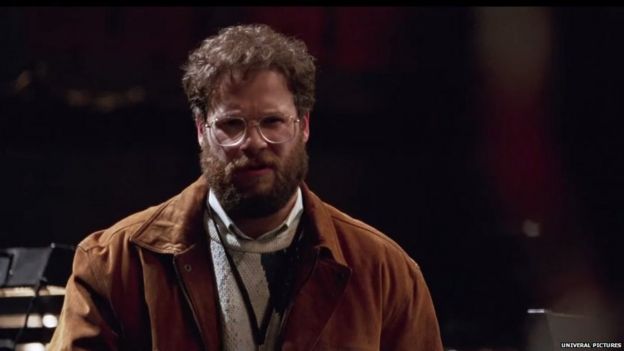 Univeral pictures
Univeral pictures
I thought he did an excellent job.
In many places in the movie I'm portrayed saying things that are negative directly to Steve Jobs.
Anybody who knows me will tell you I just don't say negative things to people, and could not have said them, and didn't.
However, there were real issues going on in the company, the world, the customers, the board, whatever.
There's a tendency to mythologise successful people after their deaths. To what degree have we seen that with Jobs?
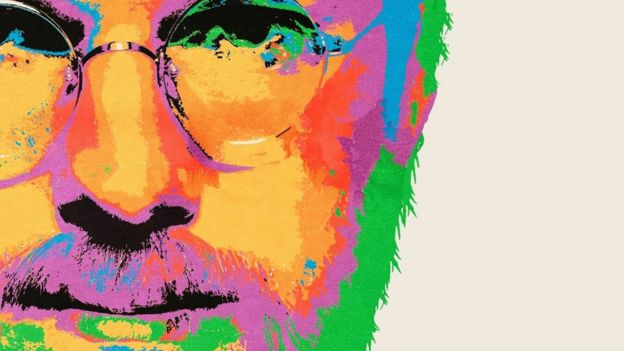 Open Road Films
Open Road Films
Oh my gosh, even while Steve was alive [so was] the myth.
He became our hero because we have our iPhones, and he saw the way the world was going to evolve much earlier than others, so we love him.
But the mythology, even while he was alive, was extended back to make him that person from day one.
[People] try and make him a lot more right about things than he was and ignore what some of the real facts were.
The most incredible scene in the Sorkin movie is between Steve Jobs and [ex-Apple chief executive] John Sculley.
It goes back and forth at two points in time [with them] saying different things that add up to where the company stood and the difference between the two of them. And it was really just a business difference.
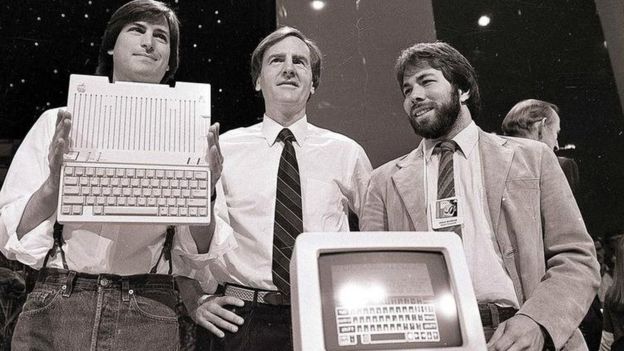 AP
AP
See, the mythology is that Steve Jobs had this beautiful vision for the Macintosh and the board and John Sculley didn't buy into it.
No. Our entire company bought into that vision as the future for Apple.
It was just going to take at least three years to build until it could finally not lose money.
And John Sculley is the one who actually made the Macintosh successful because of believing in it.
There's another film out - the documentary Steve Jobs: Man in the Machine - which a lot of reviewers suggest is particularly critical of Jobs. Its maker Alex Gibney has suggested that Steve Jobs' personality didn't change as he aged so much as he learned better how to control his public image. Apple's software chief Eddy Cue has described the film as being "inaccurate and mean-spirited". What do you make of the tension between those two views?
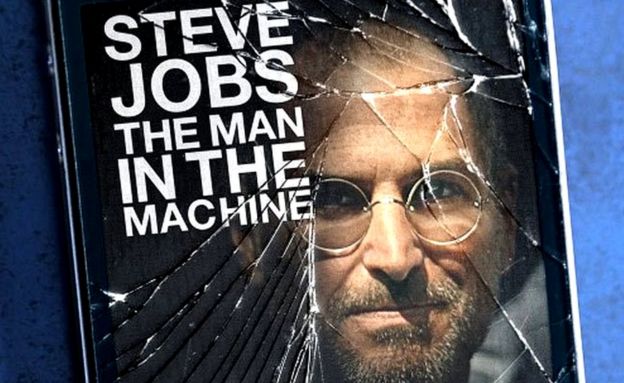 CNN Films
CNN Films
I have not seen the film, but know it has a lot of first-hand interviews with people who were very close and around Steve during things like the early Macintosh and Next days.
And a bunch of them on Facebook have told me they were there around Steve, and they've seen the movie and it exactly represents the way he was.
And you know what? Eddy Cue wasn't around in those early days.
Steve Jobs always dealt very nicely and respectfully with me - we were friends to the end - and I never saw a lot of the bad behaviour that he was accused of by others.
But I've heard about it from others.
Eddy Cue by being smart and good at what he does, Steve would have worked with him in a very different way [to his] "You can't have your ideas, I'm going to cut you down" [behaviour].
I don't think he had arguments with Eddy Cue or Tim Cook. He got along with people he respected highly. Even engineers who stood up to him, if they had a basis for standing up, Steve showed them respect.
But I don't think Steve was never that way.
To what degree do you think Apple wants to protect Jobs' reputation?
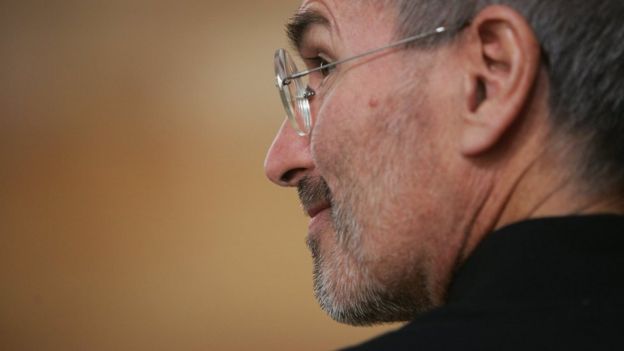 Getty Images
Getty Images
I think Apple goes out of its way to try to enhance his reputation and safeguard the "great" Steve Jobs.
Steve was not a nice "people person". I meet a lot of CEOs who are, and they don't have these kind of reputations and stories about their background.
Think about this: What would Steve Jobs' legacy be had he been nice to everyone and still have sold great products, which is totally possible?
He would just be the hero of all time.
But his personality settled in around aged 18 to 23 and it stayed for life. It really almost never changed.
So, his way of acting that way and not caring what other people thought about him - which let's you be nastier than you would have been otherwise - that was right there at the start of Apple.
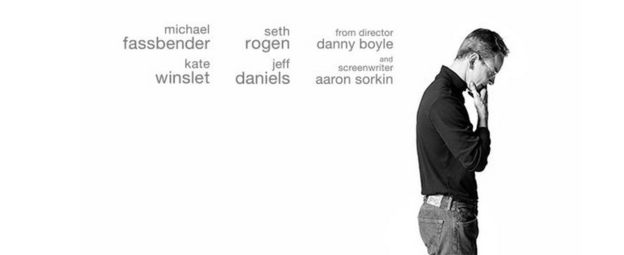 Universal Pictures
Universal Pictures
All of a sudden we had a bunch of money, Steve saw the chance to have power - which he always wanted in his life - and he ensured he was always involved in the power even though he hadn't really ever created the product or had a [prior] executive job to qualify him for the title.
He established himself by force to be the leader, that was his goal.
That was when his personality changed from being the nice prank-playing joking person that we'd go to concerts with, to all of a sudden everything had to be super-serious and super-business and you couldn't fall behind anyone else.
I saw that change, I was there during those days, and from then on Steve wasn't the person he'd been before we had started Apple.
But I would point this out: he ended up with a wife and a family and a home. He spent a lot of time there and had good relationships with his family.
So, he did manage to have a side of his life that kind of didn't matter so much [to him] when he was younger and starting to get rich.
No comments:
Post a Comment